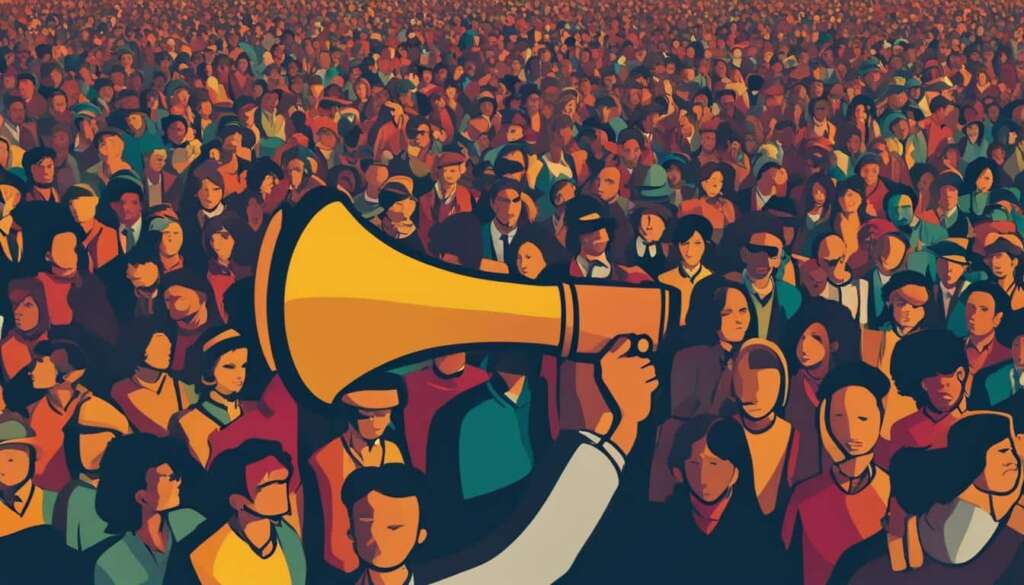Table of Contents
A change agent, also known as an agent of change, is someone who promotes and enables change within a group or organization. In a business context, a change agent is an individual who supports the adoption of new processes, the implementation of new management structures, or the transformation of outdated business models. They are responsible for promoting the value of the transformation, formulating the change plan, guiding others through the transformation, and ensuring successful implementation.
Change agents can be internal or external to the organization, and they possess a range of skills such as effective communication, relationship building, and technical knowledge.
Types of Change Agents
Change agents play a crucial role in driving successful change within organizations. They can be classified into two main types: internal change agents and external change agents.
Internal Change Agents
Internal change agents are individuals who work within the organization and possess the necessary skills and authority to drive change. These change agents can be team members, managers, or even lower-tier workers who have the right mix of expertise and knowledge. They are familiar with the organization’s culture, processes, and dynamics, making it easier for them to navigate through internal challenges and facilitate change. Internal change agents have a deep understanding of the company’s goals and are dedicated to achieving them through effective change initiatives.
External Change Agents
External change agents, on the other hand, are consultants or professionals from outside the organization who are brought in to assist with the change effort. These change agents provide a fresh perspective and bring in expertise from various industries and organizations. With their extensive experience in managing change, they bring valuable insights, best practices, and innovative approaches to drive successful change initiatives. External change agents can provide objective assessments, unbiased recommendations, and specialized knowledge that may not be readily available internally.
By combining the strengths of both internal and external change agents, organizations can maximize their chances of successfully implementing change and achieving desired outcomes.
Roles and Responsibilities of a Change Agent
Change agents play a crucial role in promoting and facilitating change within an organization. They have diverse responsibilities throughout the change process, ensuring the successful implementation and adoption of transformative initiatives. The roles and responsibilities of a change agent can be summarized as follows:
- Promoting Change: Change agents act as strong advocates for change, emphasizing its importance and benefits to individuals and the organization as a whole. They effectively communicate the need for change, highlighting the advantages and addressing any concerns or resistance.
- Communication: A key responsibility of change agents is to facilitate effective communication throughout the change process. They convey the vision, objectives, and details of the change to all stakeholders, ensuring understanding and alignment. Change agents establish open lines of communication, encourage feedback, and address any questions or uncertainties that arise.
- Advocacy: In addition to promoting change, change agents actively advocate for the transformation within the organization. They build support and engage key stakeholders, leveraging their influence to drive change adoption. By demonstrating commitment and enthusiasm, change agents inspire others to embrace the new direction.
- Training and Support: Change agents provide training and support to team members and individuals affected by the change. They develop and deliver relevant training programs, ensuring that employees have the necessary skills and knowledge to adapt to new processes or systems. Change agents offer guidance and assistance, fostering a smooth transition and addressing any challenges that arise.
- Feedback Collection: Change agents play a critical role in gathering feedback from stakeholders and those affected by the change. They create mechanisms for feedback, actively listen to concerns, and address them appropriately. By collecting feedback, change agents can refine the change strategy, identify areas for improvement, and foster a sense of ownership and involvement among team members.
- Mediation: Conflict and resistance are natural during times of change. Change agents act as mediators, facilitating constructive dialogue and resolving conflicts that may arise. They foster collaboration and understanding, ensuring that all voices are heard and conflicts are resolved in a fair and balanced manner.
- Tracking Objectives: Change agents are responsible for tracking the objectives and milestones of the change project. They ensure that progress is monitored, and any deviations or roadblocks are addressed promptly. By tracking objectives, change agents keep the change initiative on track and make adjustments as needed to achieve successful outcomes.
The roles and responsibilities of a change agent are multifaceted and require a diverse skill set. Effective change agents excel in promoting change, facilitating communication, advocating for the transformation, providing training and support, collecting feedback, mediating conflicts, and tracking objectives to drive successful change implementation and adoption.
Image:

Characteristics of Successful Change Agents
Successful change agents possess a range of characteristics that contribute to their effectiveness in driving and implementing change within an organization. These characteristics enable them to navigate through complex challenges and inspire others to embrace change.
Diversified Knowledge and Experience
Change agents have diversified knowledge and experience in the relevant business discipline. Their understanding of different aspects of the organization allows them to identify opportunities for improvement and make informed decisions. This broad perspective helps to develop innovative solutions to complex problems.
Flexibility and Openness to New Ideas
Change agents are flexible and adaptable, ready to embrace new ideas and approaches. They are open to different perspectives and willing to challenge traditional practices. This flexibility enables them to navigate through uncertainties and adapt to evolving circumstances during the change process.
Strong Network and Trustworthiness
Change agents have a strong network of relationships throughout the organization. They build trust with colleagues, stakeholders, and employees, which is essential for effective change management. This network allows them to collaborate, influence, and gain support for change initiatives.
Excellent Communication Skills
Communication skills are crucial for change agents to convey the reasons for change and address questions and concerns effectively. They have the ability to articulate the benefits of change, share the vision, and inspire others to take action. Good communication fosters transparency and ensures that all stakeholders understand the change process.
“The ability to communicate is the key to making change happen.” – Wayne Hemrick
Courage, Storytelling Abilities, and Enthusiasm
Change agents exhibit courage and resilience to overcome resistance and navigate difficult conversations. They have the ability to tell compelling stories that connect with people on an emotional level, helping them understand the purpose and benefits of the change. Their enthusiasm for new opportunities and potential drives them to create a positive and motivating environment for change.
These characteristics collectively contribute to the success of change agents in driving meaningful change and achieving desired outcomes within organizations.
Important Skills for Change Agents
Change agents play a crucial role in driving successful change initiatives within an organization. To effectively perform their role, change agents must possess a specific set of skills that enable them to navigate the complexities of the change process. These skills include:
Prioritization
Change agents are responsible for managing multiple tasks and responsibilities concurrently. Prioritization skills are essential for ensuring that the most critical aspects of the change initiative are addressed promptly and efficiently.
Relationship Building
Establishing trust and building strong relationships is vital for change agents. They must foster positive rapport with team members and stakeholders, as these relationships contribute to effective collaboration and support throughout the change process.
Communication Skills
Effective communication is a cornerstone skill for change agents. They must possess the ability to convey the importance and benefits of change to others, address concerns and questions, and provide clear and concise instructions.
Technical Knowledge
In today’s digital age, change agents benefit from having technical knowledge, especially in digital transformation tools. This knowledge allows them to navigate and manage change initiatives effectively. Stay updated on the latest technological advancements relevant to the change initiative.
By honing these important skills, change agents are better equipped to drive successful change within organizations, foster a positive and dynamic environment, and ensure the smooth adoption and implementation of change initiatives.
Keep in mind that successful change agents possess a combination of these skills, allowing them to adapt and respond to the unique challenges that arise during the change process.
Why Change Agents Are Important
Change agents are instrumental in driving successful change within organizations. They play a crucial role as change facilitators, helping to overcome resistance to change, solving problems, and ensuring the successful implementation of change projects.
One of the primary challenges in implementing change is the resistance that often arises from employees or other stakeholders. Change agents actively address these concerns by engaging in open and transparent communication. They listen to the fears and doubts of others and provide viable solutions to potential issues. By doing so, change agents build trust and create a supportive environment for change.
Problem-solving is another core responsibility of change agents. They possess the skills and expertise to identify and solve challenges that may arise during the change process. Whether it’s addressing technical issues, managing conflicts, or adapting strategies, change agents are adept at navigating obstacles and finding effective solutions.
Successful implementation and adoption of change initiatives heavily rely on the efforts of change agents. They serve as a bridge between organizational leadership and employees, effectively conveying the reasons for change and advocating for its necessity. By acting as change advocates, change agents inspire others to embrace change, fostering a positive and receptive culture within the organization.
| Role of Change Agents | Key Responsibilities |
|---|---|
| Facilitate Change | Smooth resistance to change by addressing concerns and providing solutions |
| Problem-Solving | Identify and solve challenges during the change process |
| Implementation and Adoption | Ensure successful implementation and adoption of change initiatives |
| Advocacy | Convey the reasons for change and advocate for its necessity |
Change agents possess the skills and knowledge needed to navigate complex change processes. They bring expertise in organizational behavior, change management methodologies, and effective communication. These skills, combined with their ability to inspire and influence others, make change agents vital to the success of any change initiative.
Techniques Used by Change Agents
Change agents employ various techniques to support change initiatives. These techniques are designed to facilitate understanding, engagement, and adoption of change within an organization.
Change Management Exercises
Change management exercises are valuable tools used by change agents to help employees understand and embrace change. These exercises provide opportunities for individuals and teams to explore the reasons for change, identify potential challenges, and brainstorm solutions. By actively involving employees in the change process, change agents can foster a sense of ownership and commitment to the desired transformation.
WIIFM Technique
The “WIIFM” (What’s In It For Me) technique is one of the most effective strategies employed by change agents. This technique focuses on addressing individuals’ personal concerns and highlighting the benefits of change from their perspective. By emphasizing the positive outcomes and opportunities that the change brings, change agents can help individuals see the personal value in embracing change.
Organizational Culture
Change agents recognize the crucial role of organizational culture in driving successful change. They work to understand the existing culture and identify ways to align it with the desired change. By assessing and addressing cultural elements such as values, norms, and communication patterns, change agents can help create an environment that supports and sustains the desired change.
Change Communication
Effective communication is a key aspect of change management, and change agents place a strong emphasis on it. They develop comprehensive communication plans to ensure that stakeholders understand the reasons for change, the benefits it brings, and the steps involved in the change process. By using clear and concise messaging tailored to different stakeholder groups, change agents can build understanding, generate support, and address any concerns or resistance that may arise.
Change agents use these techniques in a strategic and coordinated manner to create momentum and engagement throughout the organization. By employing a holistic approach that encompasses change management exercises, the WIIFM technique, organizational culture, and change communication, change agents increase the likelihood of successful change implementation and adoption.
How to Identify Effective Change Agents
Identifying effective change agents requires a systematic approach that aligns with the organization’s specific requirements. One effective method is through skill assessment and the use of a checklist tailored to the desired characteristics and qualities of change agents. While the seniority approach may seem intuitive, it is important to recognize that individuals with the necessary skills and qualities can be found at various levels within an organization.
When selecting change agents, organizations should consider the unique characteristics and qualities needed for the specific change initiative. Effective change agents possess a broad knowledge base, understand the risks involved, and can build strong relationships with stakeholders. They lead by example, demonstrating their commitment to change, and have exceptional communication and negotiation skills.
By conducting a skill assessment and utilizing a checklist that encompasses the desired characteristics and qualities, organizations can identify individuals who have the potential to be effective change agents. These individuals can then be equipped with the necessary resources and support to drive successful change initiatives and promote a culture of adaptability and innovation within the organization.
FAQ
What is a change agent?
A change agent is someone who promotes and enables change within a group or organization. They support the adoption of new processes, the implementation of new management structures, or the transformation of outdated business models.
What are the types of change agents?
There are two types of change agents: internal change agents, who are individuals within the organization, such as managers or team leaders, and external change agents, who are consultants or professionals brought in from outside the organization.
What are the roles and responsibilities of a change agent?
Change agents act as advocates for change, communicate the need for change, gather feedback, and address concerns. They also provide training and support, mediate points of contention, and ensure that project objectives are managed effectively.
What are the characteristics of successful change agents?
Successful change agents have diversified knowledge and experience, flexibility, a strong network, trustworthiness, and effective communication skills. They are also open to new ideas and exhibit enthusiasm for new opportunities.
What skills do change agents need?
Change agents need skills in prioritization, relationship building, effective communication, and technical knowledge in tools related to digital transformation.
Why are change agents important in organizations?
Change agents serve as facilitators of change, helping to address resistance, contribute to problem-solving, and ensure successful implementation and adoption of change projects.
What techniques do change agents use?
Change agents use techniques such as change management exercises, the “WIIFM” (What’s In It For Me) technique, focus on organizational culture, and effective change communication to support change initiatives.
How can effective change agents be identified?
Effective change agents can be identified through skill assessment and the use of a checklist that aligns with the specific requirements of the organization. It is important to consider the unique characteristics and qualities needed for the change initiative and select candidates accordingly.












